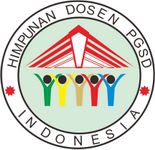Efektivitas Model Discovery Learning dan Problem Based Learning dalam Rangka Peningkatan Kemampuan Literasi Numerasi Mapel IPAS Kelas IV SD
DOI:
https://doi.org/10.31949/jee.v6i2.5471Abstract
The background of this research is that there are still many teachers who do not understand well how to prepare learning that can improve and prepare students' numeracy literacy. The research aims to determine the difference in the effectiveness of using the model Dıscovery Learnıng and Problem Based Learning in order to increase the numeracy literacy skills of the IPAS class IV SD subject. This research method is a quasi-experimental design type Nonequivalet Control Group Design with the research subjects of all fourth grade students of SD Negeri Salatiga 03. The results of the study obtained that the test results N-Gain Score showing the average value of numeracy literacy ability of experimental class 1 using the model Dıscovery Learnıng of 57.4663% the category is quite effective and the experimental class 2 uses the model Problem Based Learning with an average of 38.5194% ineffective category. Thus, it is concluded that there are differences in the effectiveness of the model Dıscovery Learnıng with models Problem Based Learning in the framework of improving numeracy literacy in IPAS class 4 SD subjects.
Keywords:
'Kemampuan Literasi Numerasi', 'IPAS', 'Discovery Learning', 'Problem Based Learning'Downloads
References
Ababil, N. (2022). Pengaruh Penerapan Model Pembelajaran Guided Discovery Learning Berbantuan Google Classroom Terhadap Kemampuan Literasi Matematika Siswa. In Repositori UIN Sunan Ampel Surabaya.
Afifah, Q. kholilah. (2020). Pengaruh Model Pembelajaran Case Based Learning (CBL) Terhadap Kemampuan Literasi Matematis Siswa.
Alsharif, K. (2014). How Do Teachers Interpret The Term ’ Constructivism ’ As A Teaching Approach In The Riyadh Primary Schools Context ? Procedia - Social and Behavioral Sciences, 141, 1009–1018. https://doi.org/10.1016/j.sbspro.2014.05.170
Ambarwati, D., & Kurniasih, M. D. (2021). Pengaruh Problem Based Learning Berbantuan Media Youtube Terhadap Kemampuan Literasi Numerasi Siswa. Jurnal Cendekia : Jurnal Pendidikan Matematika, 5(3), 2857–2868. https://doi.org/10.31004/cendekia.v5i3.829
Kepala BSKAP No.008/H/KR/2022 Tentang Capaian Pembelajaran Pada PAUD, Jenjang Pendidikan Dasar Dan Jenjang Pendidikan Menengah Pada Kurikulum Merdeka, BSKAP (2022). https://doi.org/10.1290/1543-706x(2006)42[39-ab:p]2.0.co;2
Budiman, D. R. (2022). Pengaruh Starter Experiment Approach terhadap Kemampuan Berpikir Kreatif Peserta Didik pada Konsep Gelombang Bunyi. Institutional Repository UIN Syarif Hidayatullah Jakarta. https://repository.uinjkt.ac.id/dspace/bitstream/123456789/64545/1/11170163000058_Dika Rahayu Budiman_Bab1-5.pdf
Desvariana, Y. (2020). Penerapan Model Problem Based Learning (PBL) Untuk Meningkatkan Hasil Belajar Siswa Pada Mata Pelajaran IPS di Sekolah Dasar. Workshop Inovasi Pembelajaran Di Sekolah Dasar, 3(July), 1–7. https://jurnal.uhnp.ac.id/psn-uhnp/article/view/1
Jones, M. G., Chesnutt, K., Ennes, M., Macher, D., & Paechter, M. (2022). Studies in Educational Evaluation Measuring science capital , science attitudes , and science experiences in elementary and middle school students. Studies in Educational Evaluation, 74(July 2021), 101180. https://doi.org/10.1016/j.stueduc.2022.101180
Kemendikbud-Ristek. (2021). Modul Literasi Numerasi di Sekolah Dasar. In Kemendikbud-Ristek Direktorat Sekolah Dasar. http://ditpsd.kemdikbud.go.id/upload/filemanager/2021/06/3 Modul Literasi Sains.pdf
Kemendikbudristek. (2022a). Buku Saku: Tanya Jawab Kurikulum Merdeka. Kemendikbudristek. https://ditpsd.kemdikbud.go.id/upload/filemanager/download/kurikulum-merdeka/Tanya jawab Kurikulum Merdeka Fin (1).pdf
Kemendikbudristek. (2022b). Merdeka Belajar Episode Kelima Belas: Kurikulum Merdeka Dan Platform Merdeka Mengajar. Kemendikbudristek.
Khotimah, H. (2022). Pengaruh Model Problem Based Learning Berbantuan Software Cabri 3D V2 terhadap Kemampuan Literasi Numerasi Siswa. In UIN Raden Intan Lampung. http://repository.radenintan.ac.id/21311/
Kristin, F. (2018). Perkembangan Peserta Didik. Satya Wacana University Press.
Kusumadewi, R. F., Ulia, N., & Ristanti, N. (2019). Efektivitas Model Pembelajaran Discovery Learning Terhadap Kemampuan Literasi Matematika di Sekolah Dasar. Sekolah Dasar: Kajian Teori Dan Praktik Pendidikan, 28(1), 11–16. https://doi.org/10.17977/um009v28i12019p011
Lund, A. B., & Cyvin, J. (2022). Storyline in natural science teacher education - An approach to the coherence between theory and practice. International Journal of Educational Research Open, 3(June 2021), 100104. https://doi.org/10.1016/j.ijedro.2021.100104
Novitasari, R., Nasirun, M., & D., D. (2019). Meningkatkan Kemampuan Motorik Kasar Anak Melalui Bermain Dengan Media Hulahoop Pada Anak Kelompok B Paud Al-Syafaqoh Kabupaten Rejang Lebong. Jurnal Ilmiah Potensia, 4(1), 6–12. https://doi.org/10.33369/jip.4.1.6-12
Nurmawati, A. D., Nisa, A. F., Rosianawati, A., Budi Artopo, Erva, R. A. L., & Nizhomi, B. (2022). Implementasi Ajaran Tamansiswa “Tri Nga” Melalui Model Pembelajaran Discovery Learning Dalam Pembelajaran Ipa Kelas Iv Sekolah Dasar. TRIHAYU: Jurnal Pendidikan Ke-SD-An, 8(2), 1366–1372. https://doi.org/10.30738/trihayu.v8i2.11832
Pakpahan, F. H., & Saragih, M. (2022). Theory Of Cognitive Development By Jean Piaget. Journal of Applied Linguistics, 2(2), 55–60. https://doi.org/10.52622/joal.v2i2.79
Paloloang, M. F. B., Juandi, D., Tamur, M., Paloloang, B., & Adem, A. M. G. (2020). Meta Analisis: Pengaruh Problem-Based Learning Terhadap Kemampuan Literasi Matematis Siswa Di Indonesia Tujuh Tahun Terakhir. AKSIOMA: Jurnal Program Studi Pendidikan Matematika, 9(4), 851–864. https://doi.org/10.24127/ajpm.v9i4.3049
Petruţa, G.-P. (2015). Formation of some concepts of natural sciences during primary education. Procedia - Social and Behavioral Sciences, 180(November 2014), 688–695. https://doi.org/10.1016/j.sbspro.2015.02.179
Rusilowati, A., Juhadi, & Widiyatmoko, A. (2021a). Konsep Desain Pembelajaran IPAS Terintegrasi Literasi Dan Numerasi Di Jenjang SD. https://pembelajaranipas.id/
Rusilowati, A., Juhadi, & Widiyatmoko, A. (2021b). Model Pembelajaran Reflection Discovery Learning. https://pembelajaranipas.id/
Sugiyono. (2015). Metode Penelitian dan Pengembangan (research and development/ R&D). Alfabeta.
Susilawati, S. A., Musiyam, M., & Wardana, Z. A. (2021). Pengantar Pengembangan Bahan dan Media Ajar. Muhammadiya University Press. https://www.google.co.id/books/edition/Pengantar_Pengembangan_Bahan_dan_Media_A/J3JXEAAAQBAJ?hl=id&gbpv=1&dq=teknik+analisis+interensial+MERUPAKAN&pg=PA172&printsec=frontcover
Umam, N. (2022). Skripsi Implementasi Penggunaan Modul Berbasis Literasi dan Numerasi di Kelas IV SD Ma’arif Ponorogo Tahun Ajaran: 2020-2021.
Wang, X., Young, G. W., & Makransky, G. (2023). Computers & Education Utilizing virtual reality to assist social competence education and social support for children from under-represented backgrounds. 201(September 2022). https://doi.org/10.1016/j.compedu.2023.104815
Weert, J. C. M. Van, Alblas, M. C., Dijk, L. Van, & Jansen, J. (2021). Patient Education and Counseling Preference for and understanding of graphs presenting health risk information . The role of age , health literacy , numeracy and graph literacy. Patient Education and Counseling, 104(1), 109–117. https://doi.org/10.1016/j.pec.2020.06.031
Wijaya, A., & Dewayani, S. (2021). Framework Asesmen Kompetensi Minimum (AKM). In Kepala pusat asesmen dan pembelajaran, Badan Litbang dan perbukuan, kemendikbud. https://hasilun.pusmenjar.kemdikbud.go.id/akm/Framework_AKM_31032022.pdf











